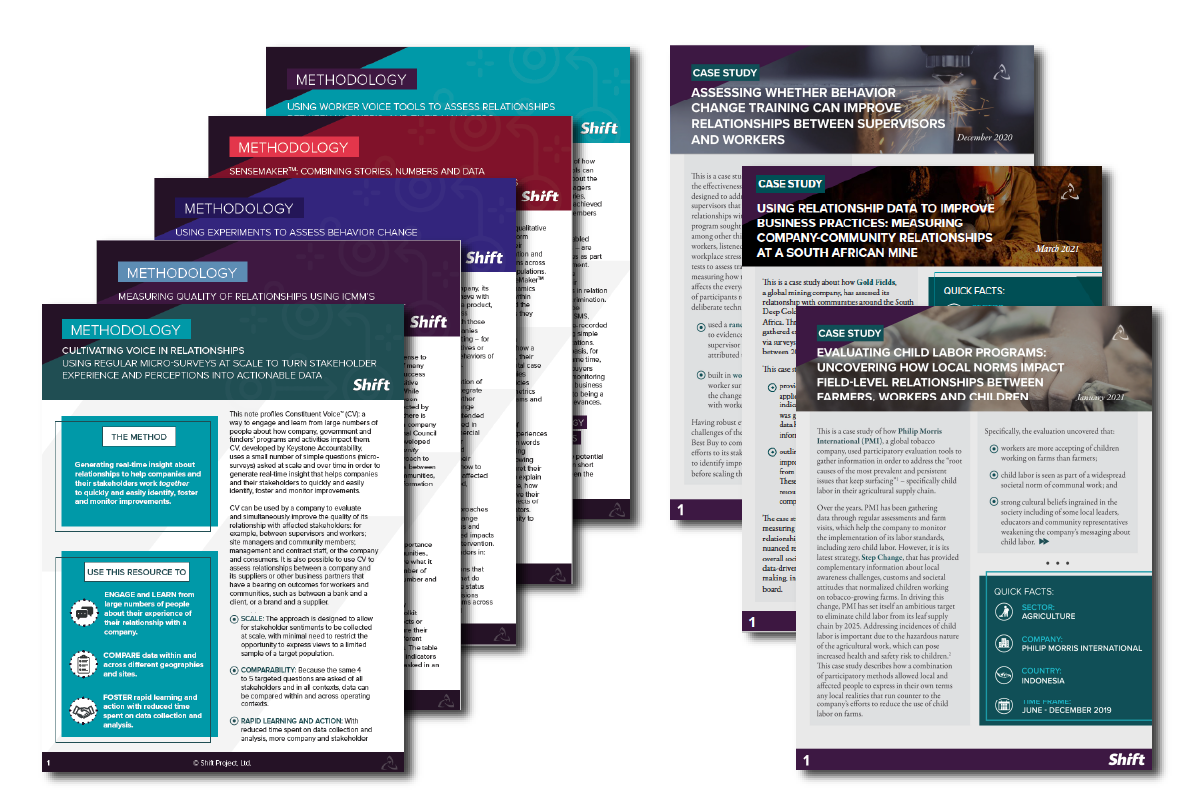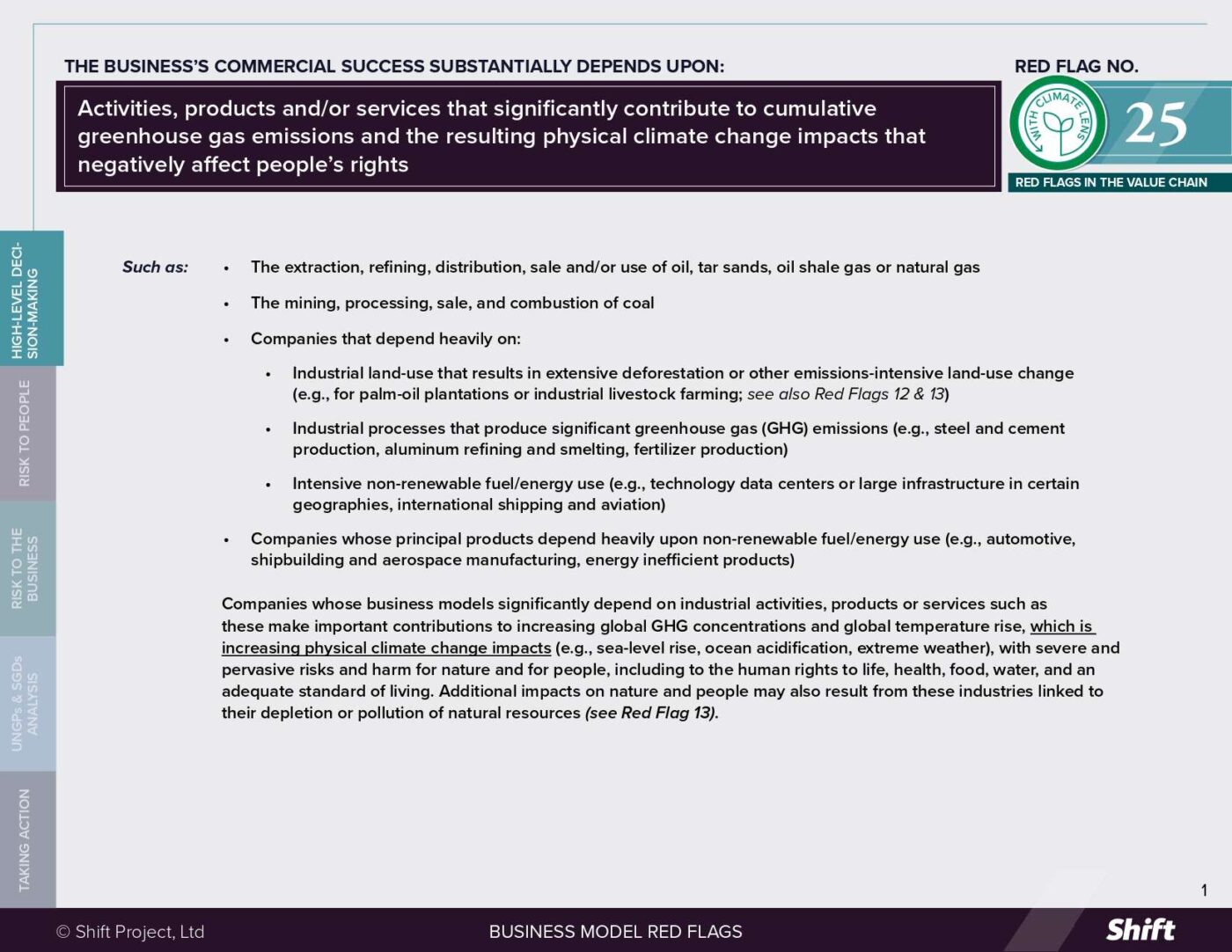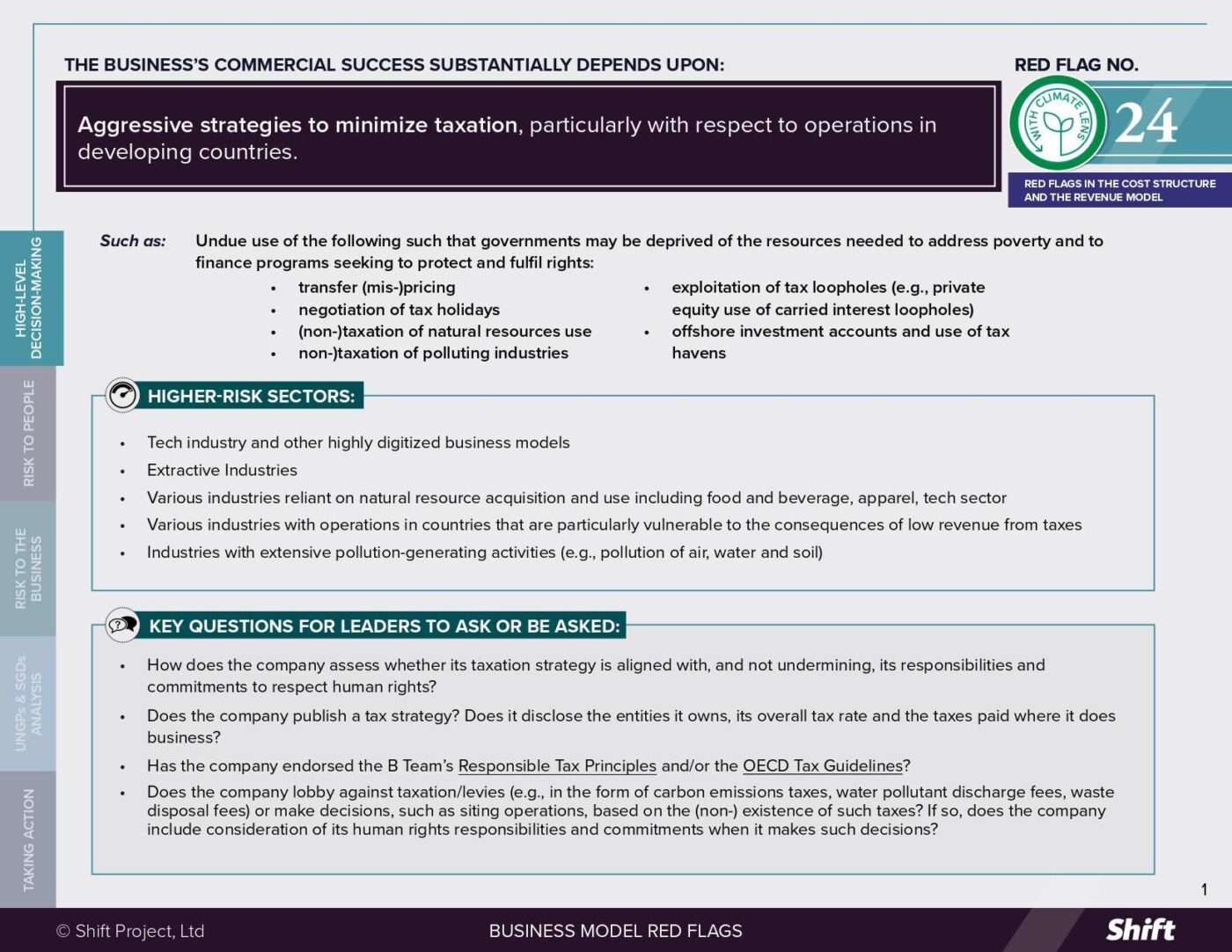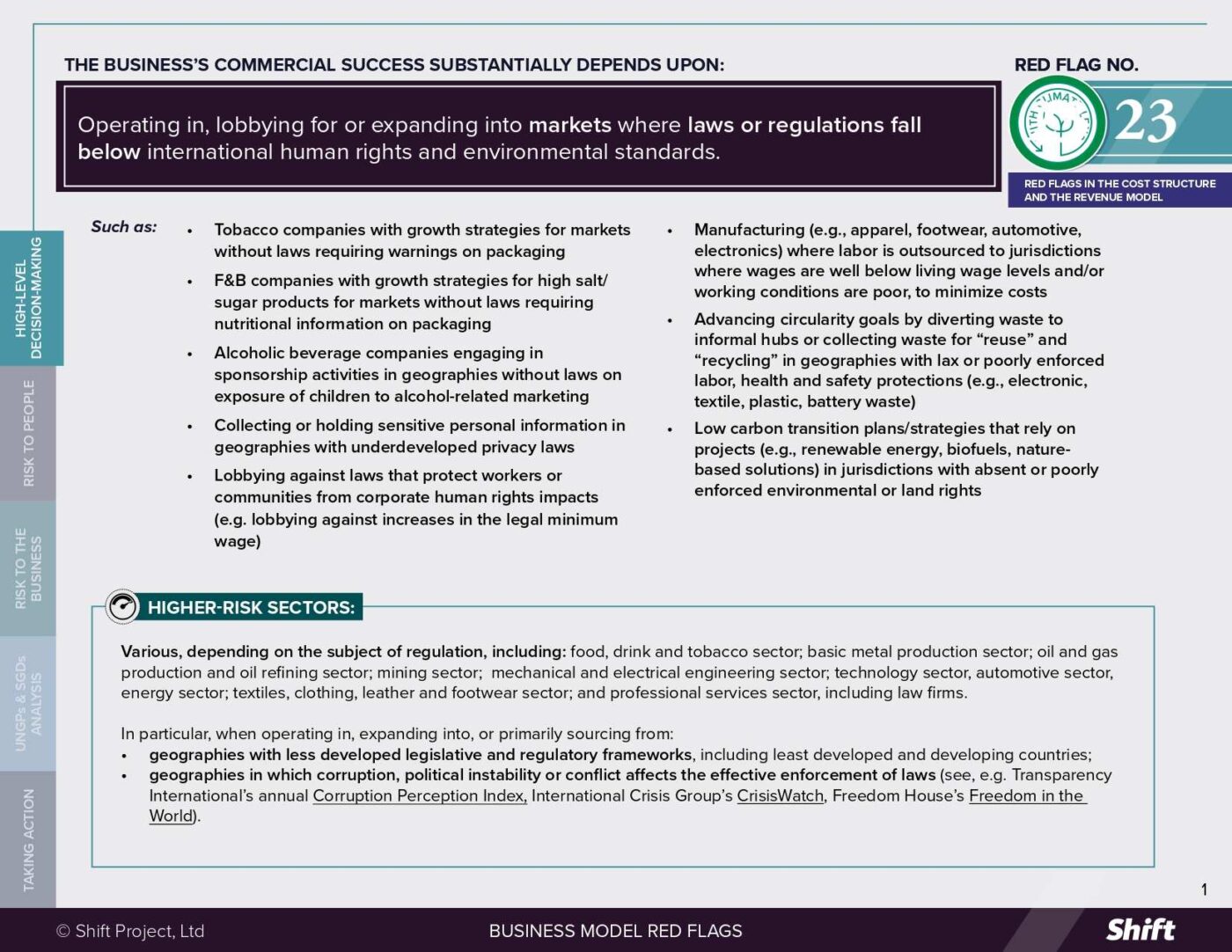Good stakeholder relationships underpin respect for human rights
Doing business with respect for people’s dignity and equality starts, in many ways, by building good quality relationships with potentially affected workers, communities and consumers. Yet when it comes to evaluating company efforts to respect human rights – ‘tracking’ their performance, in the language of the UN Guiding Principles – there has been little focus on gathering data about how affected stakeholders experience their relationships with the companies that affect their lives.
Through this resource, we seek to provide inspiration for how companies can generate and act on data about dimensions of their relationships with stakeholders that are intangible: such as trust, respect and feelings of agency. The individual case studies and methodologies are instructional in their own right: each setting out the benefits of a distinct approach, the step-by-step process to follow, examples of how data can be visualized and reflections from practitioners.
None of these cases and methods are perfect. But they are all a substantial step in the right direction, and together they signal an emerging body of innovation in how to measure what matters in the field of responsible business conduct.
Why Focus on Relationships?
Bringing stakeholder voice into the assessment of company-stakeholder relationships is important for three, interrelated reasons:
- Stakeholder engagement is paramount to each step of the due diligence process, under the UN Guiding Principles. Yet these efforts are too often assessed using metrics about the existence of formal processes, or the frequency and reach of activities through which a company interacts with stakeholders. Robust processes are important. But stopping at process metrics misses the critical signal of how affected stakeholders view the relationships that are created through these processes.
- The on-going relationships that a company, its suppliers or other business partners have with potentially affected stakeholders are a product, in good part, of the way those business actors behave in their interactions. Measures about the quality of relationships are a real-time indicator of whether a culture of respect for people is in place in the office, factory, field or operational site. They can tell us about the likelihood of risks to and impacts on people being identified and addressed in ways that are appropriate.
- Whether affected stakeholders feel respected, treated fairly and can pursue goals that matter to them in their relationship with companies helps us understand the outcomes companies are delivering in people’s lives. Qualitative data about the quality of relationships is, therefore, an important complement to the more widespread quantitative metrics about diversity, wage levels or numbers of grievances resolved.

 Business Model Red Flags
Business Model Red Flags  Tool for Indicator Design
Tool for Indicator Design 



